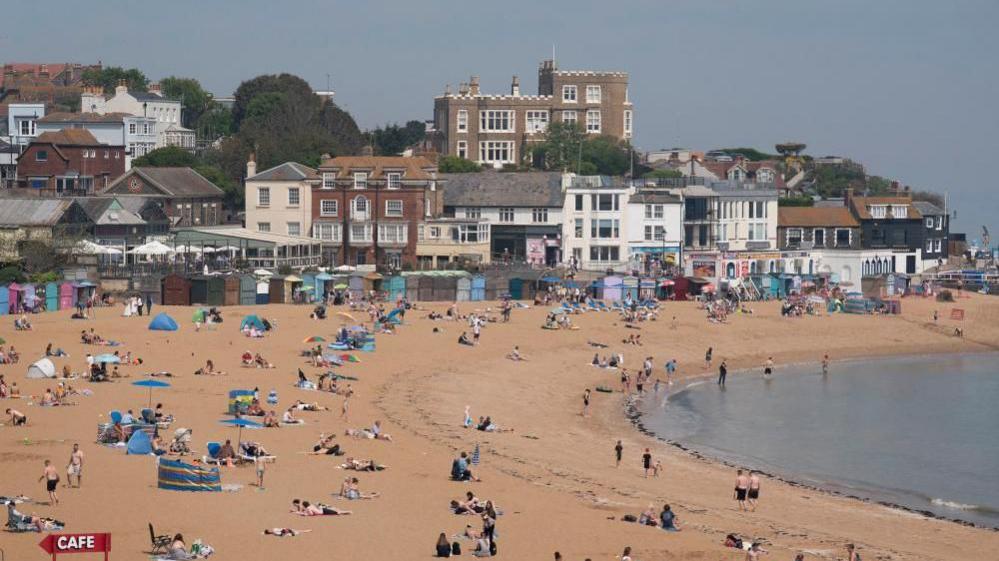Hottest ever start to May as temperatures hit 29C

- Published
A new record was set for the hottest start to any May on record on Thursday, with temperatures reaching 29.3C (84.7F) in London.
That high, which was recorded at Kew Gardens, beat the previous record of 27.4C (81.3F), which was set in Lossiemouth, Scotland, in 1990, the Met Office said.
Much of the UK basked in heat well above the average for the time of year, though conditions were cooler in Scotland and Northern Ireland.
The spell of hot weather was triggered by an area of high pressure which had become blocked over the UK, leading to a sustained south-easterly air flow bringing warm conditions.
Thursday was also the hottest day of the year so far, beating the previous high of 26.7C recorded in Wisley, Surrey earlier this week.
Temperatures in London soared above several European cities, including Athens and Rome.
The capital was also hotter than Cairo (27C), Marrakesh (27C) and Los Angeles (21C).
While not expected to hit the same sort of peaks as Thursday, temperatures are on course to remain high for many on Friday.
However, conditions are forecast to return to closer to seasonal averages across the Bank Holiday weekend.
Temperatures are expected to reach the low twenties in the south of England, with highs only reaching the mid-teens further north and in Scotland.
What is fuelling this sunny spell?
When we see heat records challenged in the UK, there is often an influence of air coming from Iberia or north Africa involved.
This is not the case this week - instead, we have seen a large area of high pressure sitting across the UK.

High pressure is essentially a huge zone in the atmosphere where air is actually descending towards the ground and warming as it travels towards us, which has been happening cumulatively over a number of days.
There are a number of other factors at play which have contributed to this record-setting day.
The area of high pressure has also come with clear and sunny skies, which helps to warm the ground.
A lack of rain has left the ground very dry, meaning it can warm more quickly.
To break that cycle of warming, the UK will need either strong winds, a change in wind direction or the arrival of cloud and rain.
While it looks set to remain dry for the vast majority of the UK across the Bank Holiday weekend, we are expecting to see those wind conditions change, which will push temperatures down.
- Published19 July 2022


